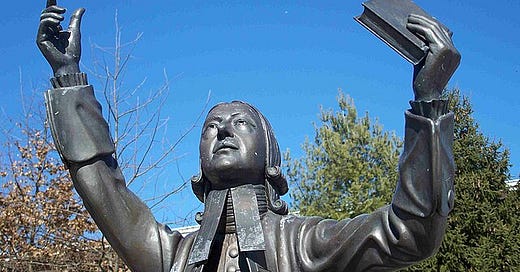Gentle reader,
It’s been some time since I addressed questions submitted by readers. Last time I did so, I gathered up a number of questions about hell, in this post.
I’m not sure what’s gotten into me today, but I’m going to take on a set of questions about the relationship between predestination and free will. I can promise this won’t be an exhaustive …
Keep reading with a 7-day free trial
Subscribe to Church Blogmatics by Beth Felker Jones to keep reading this post and get 7 days of free access to the full post archives.




